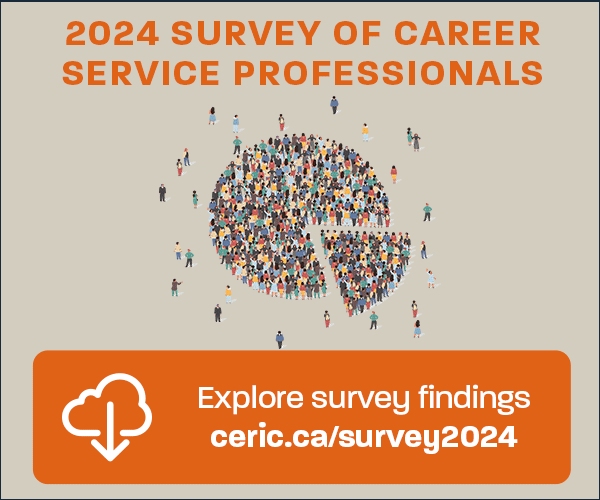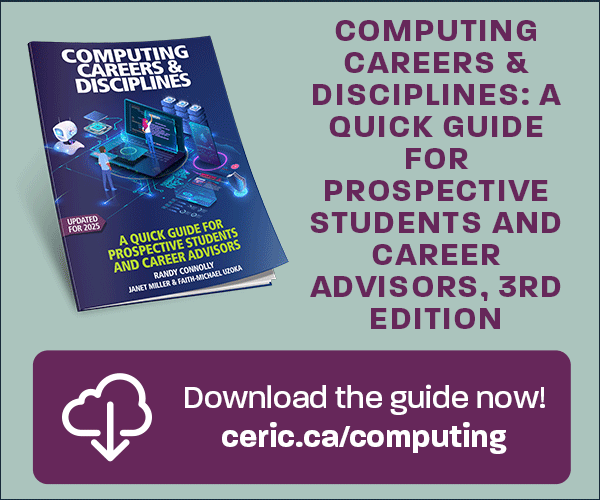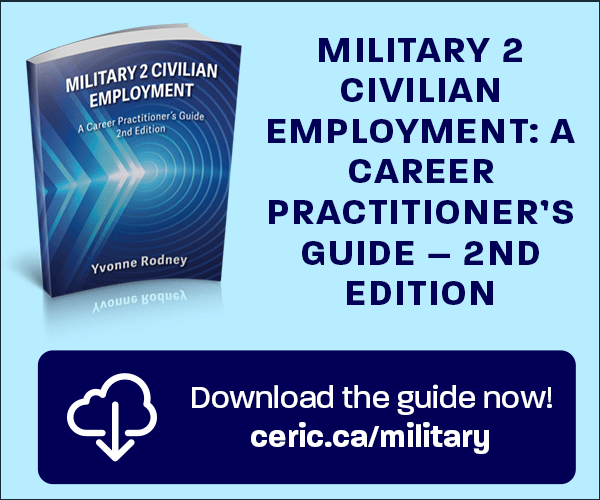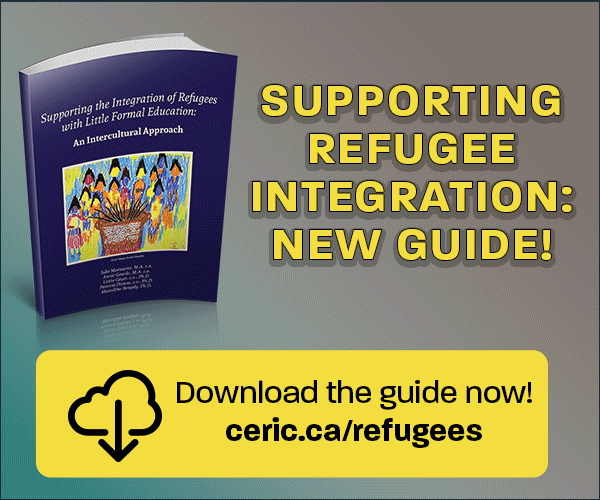Career Decision Self-efficacy Mediates the Relationship Between General Self-efficacy and Career Decision-making of Undergraduate Students
DOI:
https://doi.org/10.53379/cjcd.2024.389Keywords:
career decision selfefficacy, general self-efficacy, career decision-making, self-determination, context specific self-efficacyAbstract
Career decision-making has remained a constant challenge for students due to a lack of appropriate policy aimed at assisting students in making informed career decisions. This paper examined whether general self-efficacy of undergraduate students would predict their career decision-making through career decision self-efficacy. We obtained data from a convenient sample of 453 undergraduate students in a Ghanaian public university in a cross-sectional survey. The sample comprised 261 (57.6%) males and 192 (42.4%) females, with ages ranging from 18 to 33, and an average of 21.32 (SD = 2.25) years. Data were analysed using Hayes PROCESS for mediation (model 4). General self-efficacy significantly predicted both career decision self-efficacy and career decision-making. Also, career decision self-efficacy was a better predictor of students’ career decision-making than general self-efficacy was. Furthermore, career decision self-efficacy significantly mediated the relationship between general self-efficacy, and career decision-making. We concluded that even though both general self-efficacy and career decision self-efficacy were relevant predictors of career decision-making, context specific self-efficacy is more relevant than general self-efficacy. Implications of the findings for interventions and policy have been discussed within the social cognitive career and the self-determination theories.
References
Adedunni O. A., & Oyesoji, A. (2013). Effectiveness of career development and cognitive reframe therapy on irrational career thoughts among secondary school students in Ogun State, Nigeria. The African Symposium: An Online Journal of the African Educational Research Network, 13(2), 3655-3602.
Atoum, A., & AI-Momani, A., (2018). Perceived self-efficacy and academic achievement among Jordanian students. Trends in Technical & Scientific Research, 3(1), 4-9. https://doi.org/10.19080/TTSR.2018.03.555602
Austin, J. E. (2010). From organization to organization: On creating value. Journal of Business Ethics, 94, 13-15.
Bandura, A (1977). Self-efficacy: Toward a unifying theory of behavioural change. Psychological Review, 84(2), 191–215. https://doi.org/10.1037/0033-295x.84.2.191
Bandura, A. (1986). Social foundations of thought and action: A social cognitive theory. Prentice-Hall.
Bandura, A. (Ed.). (1995). Self-efficacy in changing societies. Cambridge University Press. https://doi.org/10.1017/CBO9780511527692
Bandura, A., Barbaranelli, C., Caprara, G. V., & Pastorelli, C. (2001). Self‐efficacy beliefs as shapers of children’s aspirations and career trajectories. Child Development, 72(1), 187-206. https://doi.org/10.1111/1467-8624.00273
Betz, N. E., Hammond, M. S., & Multon, K. D. (2005). Reliability and validity of five-level response continua for the Career Decision Self-Efficacy Scale. Journal of Career Assessment, 13(2), 131-149. https://doi.org/10.1177/1069072704273123
Betz, N. E., Klein, K. L., & Taylor, K. M. (1996). Evaluation of a short form of the Career Decision-Making Self-Efficacy Scale. Journal of Career Assessment, 4(1), 47-57. https://doi.org/10.1177/106907279600400103
Brown, C., Reedy, D., Fountain, J., Johnson, A., & Dichiser, T. (2000). Battered women’s career decision-making self-efficacy: Further insights and contributing factors. Journal of Career Assessment, 8(3), 251-265. https://doi.org/10.1177/106907270000800304
Brew, M., & Ngman-Wara, E. I. (2018). Influence of career self-efficacy on career exploration among senior high school students in relation to gender. International Journal of Multidisciplinary and Current Research, 6, 849-856. http://dx.doi.org/10.1037/0033-295X.84.2.191
Crisan, C., & Turda, S. (2015). The connection between the level of career indecision and the perceived self-efficacy on the career decision-making among teenagers. International conference “Education, Reflection, Development”, Cluj-Napoca, Romania. Procedia-Social and Behavioural Sciences, 209, 154-160. http://dx.doi.org/10.1016/j.sbspro.2015.11.271
Duru, H., & Soner, O. (2024). The relationship between career decision-making self-efficacy and emotional intelligence, career optimism, locus of control and proactive personality: A meta-analysis study. Canadian Journal of Career Development, 23(1), 6-32. https://doi.org/10.53379/cjcd.2024.376
Gadassi, R., Gati, I., & Wagman-Rolnick, H. (2013). The adaptability of career decision-making profiles: Associations with self-efficacy, emotional difficulties, and decision status. Journal of Career Development, 40(6), 490-507. https://doi.org/10.1177/0894845312470027
Godia, G. I. (2009). Ministry of Education career guide book for schools. www.Education.go.ke
International Labour Organisation. (2022). Recovery in youth employment is still lagging, says ILO. https://www.ilo.org/resource/news/recovery-youth-employment-still-lagging-says-ilo
International Labour Organisation. (2011). Global employment trends for youth, 2011 Update. https://www.ilo.org/publications/global-employment-trends-youth-2011-update
Kim, N. R., & Lee, K. H. (2018). The effect of internal locus of control on career adaptability: The mediating role of career decision‐making self‐efficacy and occupational engagement. Journal of Employment Counseling, 55(1), 2-15. https://doi.org/10.1002/joec.12069
Loo, C. W., & Choy, J. L. F. (2013). Sources of self-efficacy influencing academic performance of engineering students. American Journal of Educational Research, 1(3), 86-92. http://dx.doi.org/10.12691/education-1-3-4
McWhirter, E. H., Crothers, M., & Rasheed, S. (2000). The effects of high school career education on social–cognitive variables. Journal of Counseling Psychology, 47(3), 330. https://psycnet.apa.org/doi/10.1037/0022-0167.47.3.330
Liu, Y., Draper, J., & Dawson, M. (2022). The relationship between work experience and career expectations: Career decision-making self-efficacy as mediator. Journal of Hospitality & Tourism Education, 1-12. https://doi.org/10.1080/10963758.2022.2034118
MacGregor, P. (2007). Tracking the online audience: Metric data start a subtle revolution. Journalism Studies, 8(2), 280-298. https://doi.org/10.1080/14616700601148879
Maraya, F. M. (2011). The role of career guidance in the choice of careers among Students in public schools in Kenya: a case of Nakuru Municipality. [Unpublished M.Phil Thesis]. Eldoret: Moi University, School of Education
Previarzya, R. S., & Asmarany, A. I. (2023). The relationship of self-efficacy and career decision-making in the 12th grade high school student. American Journal of Multidisciplinary Research & Development (AJMRD), 5(6), 118-122. https://doi.org/10.1177/0894845305283004
Ocansey, F. (2000). Career compromise and adjustment among non-professional graduate teachers. IFE Psychologia: An International Journal, 8(2), 84-95. https://doi.org/10.4314/ifep.v8i2.23586
Ogutu, J. P., Odera, P., & Maragia, S. N. (2017). Self-efficacy as a predictor of career decision making among secondary school students in Busia County, Kenya. Journal of Education and Practice, 8(11), 20-29. https://doi.org/10.1177/0894845305283004
Onoyase, D., & Onoyase, A. (2009). The relationship between personality types and career choice of secondary school students in Federal Government Colleges in Nigeria. The Anthropologist, 11(2), 109-115. https://doi.org/10.1080/09720073.2009.11891090
Osipow, S. H. (1980). Toward counseling psychology in the year 2000. The Counseling Psychologist, 8(4), 18-19. https://doi.org/10.1177/001100008000800406
Patton, W., & Creed, P. (2007). The relationship between career variables and occupational aspirations and expectations for Australian high school adolescents. Journal of Career Development, 34(2), 127-148. https://doi.org/10.1177/0894845307307471
Pinquart, M., Juang, L. P., & Silbereisen, R. K. (2004). The role of self-efficacy, academic abilities, and parental education in the change in career decisions of adolescents facing German unification. Journal of Career Development, 31, 125-142. https://doi.org/10.1177/089484530403100204
Schwarzer, R., & Jerusalem, M. (1995). General Self-Efficacy Scale (GSE) [Database record]. APA PsycTests. https://doi.org/10.1037/t00393-000
Stikkelorum, M. (2014). What factors influence young age career decision making - (working paper) Master of Training & Development, spec. Professional Development. LinkedIn
Taylor, K. M., & Betz, N. E. (1983). Applications of self-efficacy theory to the understanding and treatment of career indecision. Journal of Vocational Behaviour, 22(1), 63-81. https://psycnet.apa.org/doi/10.1016/0001-8791(83)90006-4
Wang, N., Jome, L. M., Haase, R. F., & Bruch, M. A. (2006). The role of personality and career decision-making self-efficacy in the career choice commitment of college students. Journal of Career Assessment, 14(3), 312-332. https://doi.org/10.1177/1069072706286474
Watson, M., McMahon, M., Foxcroft, C., & Els, C. (2010). Occupational aspirations of low socioeconomic Black South African children. Journal of Career Development, 37(4), 717-734. https://doi.org/10.1177/0894845309359351
Watson, N. L., & Simmons, L. W. (2010). Reproductive competition promotes the evolution of female weaponry. Proceedings of the Royal Society B: Biological Sciences, 277(1690), 2035-2040. https://doi.org/10.1098/rspb.2009.2335
Wendling, E., & Sagas, M. (2020). An application of the social cognitive career theory model of career self-management to college athletes’ career planning for life after sport. Frontiers in psychology, 11, 501019. http://dx.doi.org/10.3389/fpsyg.2020.00009
Wilson, K., Kickul, J., & Marlino, D. (2007). Gender, entrepreneurial self-efficacy, and entrepreneurial career intentions: implications for entrepreneurship education. Entrepreneurship Theory and Practice, 13(3), 387-406. https://doi.org/10.1111/j.1540-6520.2007.00179.x
Zhou, C., Yue, X. D., Zhang, X., Shangguan, F., & Zhang, X. Y. (2021). Self-efficacy and mental health problems during COVID-19 pandemic: A multiple mediation model based on the Health Belief Model. Personality and Individual Differences, 179, 110893. https://doi.org/10.1016/j.paid.2021.110893

Published
How to Cite
Issue
Section
License
Copyright (c) 2024 Canadian Journal of Career Development

This work is licensed under a Creative Commons Attribution-NonCommercial-NoDerivatives 4.0 International License.
















